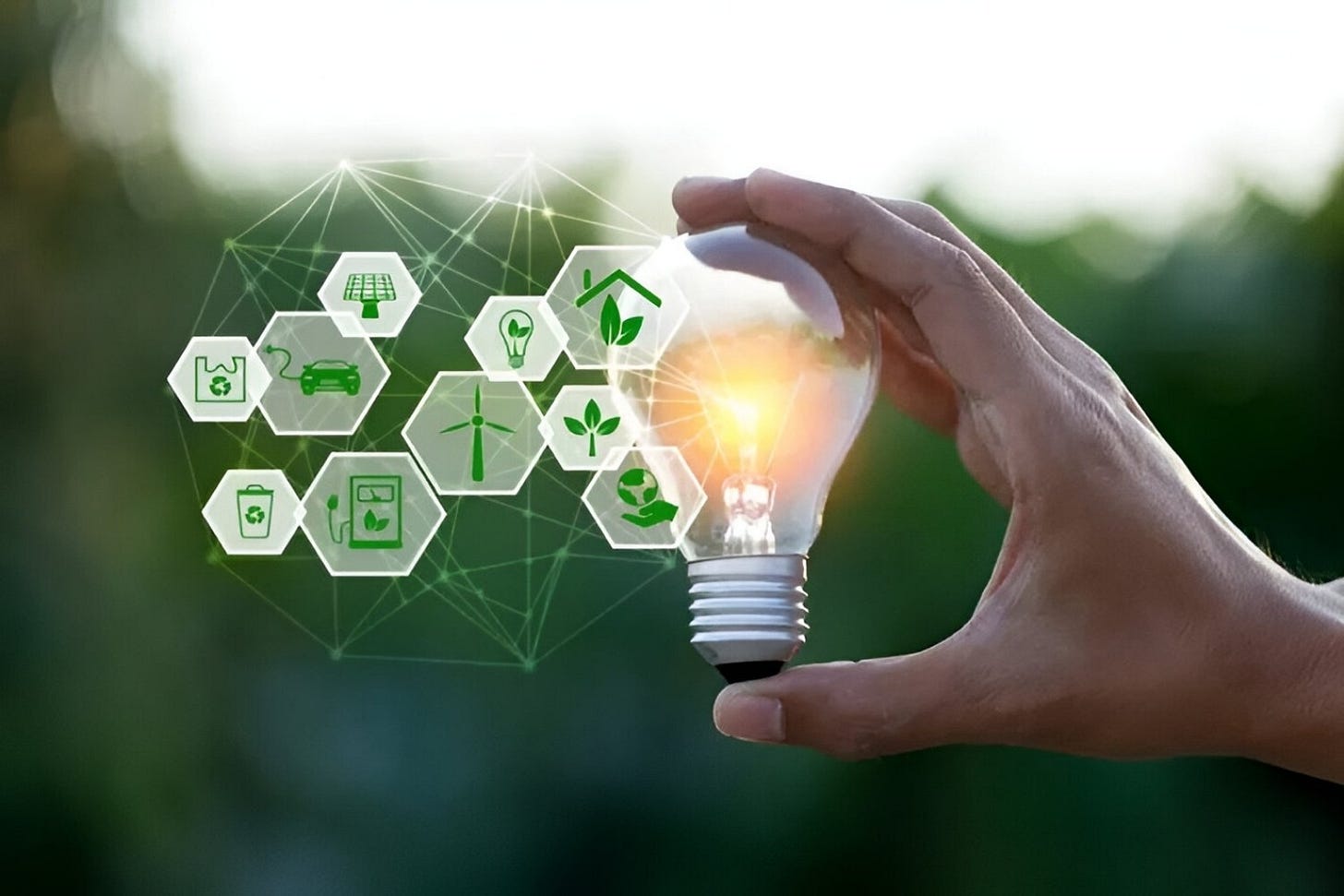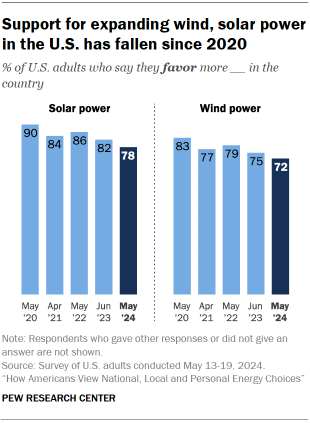Kirk | a CLMI Learn4Life feature
With the world’s climate rapidly changing, scientists are constantly trying to innovate new and renewable power sources. The goal is to make these sources, from solar to biomass to wind and geothermal energy, available for everyone. Yet the United States, the world’s largest economy, still relies heavily on the use of what are increasingly outdated non-renewable fossil fuels such as oil, natural gas, and coal.
With voters either submitting their ballots or preparing to place their ballots on November 5th, the policies of former President Donald Trump and current Vice President Harris - Republican and Democratic nominees, respectively - will be observed from multiple angles. Still, one critical question that keeps getting overlooked in that question is: what are their future policies on America's energy?
Polling
As a number of highly public polls show, energy policies and choices are not registering prominently on voter screens. Take the most recent weekly Economist/YouGov poll tabulating top issue priorities …
Energy itself is not showing up on the Top 15 issue list, even though it’s more than likely being intertwined with “climate change and the environment” in the Top 6. And even there, it’s only showing 7 percent of voters combined paying that issue any attention.
As Pew Research showed earlier this summer, support for renewables is still high, but it’s waned dramatically since 2020 …
Much of that could be driven in some part to growing partisan differences …
And there are also public concerns over pricing and accessibility of renewable energy sourcing, from solar power panels to concerns over electric vehicle prices and the charging station network.
Trump’s Views
Donald Trump has offered rather pointed views on U.S. use of its available energy sources in several of his campaign speeches. He believes that Biden's plans are making clean energy both expensive and unreliable, framing it in economic terms. Trump has been quoted as saying that Biden's views on clean energy are “Industry-killing, jobs-killing, pro-China and anti-American.”
The Republican candidate’s policies have expressed the United State's need for clean power sources, but he is mostly pro-fossil fuels. He wants to reduce the prices of fossil fuels and electricity. He plans to lower expenses on electricity by elevating nuclear power plants as a bigger part of America's energy plan. Trump has said that he will not only support active nuclear plants, but the construction of more reactors as well.
Trump plans to, also increase drilling for fossil fuels to combat the ever-rising expenses for gas, oil, coal and petroleum. According to his policies he will rollback energy regulations allowing the use of fossil fuels to be promoted. Donald Trump stays true to his popular slogan, "Drill, baby, drill." with these 2024 policies.
During his presidency, Trump implemented his 'America first' energy policies with the goal to make the nation energy dominant. His administration went on a de-regulatory spree of clean energy restrictions. Rolling back Obama-era power regulations with the reasoning that these restrictions created "unnecessary and burdensome regulations that hurt business."
He also withdrew the United States from the Paris Climate Agreement in his first presidential term, and according to his policies outlined this year he hopes to do so again if elected. The Paris Climate Agreement's goal is to unite the world with the task of limiting climate change's effects on the environment.
Harris’ Views
Kamala Harris became the democratic nominee for President on August 5th, but even in that short amount of time she has developed and expressed a wide range of views and policies that she will implement if elected. She is primarily clean energy focused, and she’s noted that her clean energy views are a continuation of several of President Biden's policies, including continuing support for and implementation of the $2 trillion Inflation Reduction Act passed under the current administration.
As a White House: Fact Sheet described it the Inflation Reduction Act is "the largest investment in clean energy and climate action ever." Put into legislation on August 16, 2022 by the Biden-Harris Administration, this law has already spent billions creating thousands of clean energy jobs, and centering equity in an effort to protect those most vulnerable to climate change dangers. As analyst firm McKinsey also explains …
The act aims to catalyze investments in domestic manufacturing capacity, encourage procurement of critical supplies domestically or from free-trade partners, and jump-start R&D and commercialization of leading-edge technologies such as carbon capture and storage and clean hydrogen. It also allocates money directly to environmental justice priorities and requires recipients of many funding streams to demonstrate equity impacts.
Harris has made it clear that because of the IRA’s progress at creating jobs and promoting renewable power, she wouldn’t need to ban the controversial fossil fuel process known as fracking as she regularly argues: "We can grow and we can increase a thriving clean energy economy without banning fracking."
Her energy policy views have evolved, in large part, from her time as California’s attorney general when she heavily prosecuted 'big polluters'. In that office, she sued companies who attempted to circumvent environmental laws, such as the dumping of oil, acids, other hazardous chemicals and the excessive release of carbon emissions.
As a Senator, Harris always supported the Green New Deal, first introduced in 2007, as it promotes the use of clean energy in the U.S. During this term she also suggested new legislation that would further elevate the use of clean power like the Clean School Bus Act. She was unable to pass her bills as a Senator but under the Biden administration similar acts were ratified.
Renewable energy is not just important because it's emission and pollution free. This type of power has a continuous supply of resources as compared to the finite energy of nonrenewable sources. Hence, it becomes even more critical for people to learn more about national use of energy. is so important for people today to be educated in our nation's use of energy. Growing knowledge of a future President's energy policy offers an opportunity to vote for the candidate you believe has the best plan for the future. The science of energy and the policies needed to shape them can be a very complicated affair. But, so to are the consequences from devastating outcomes and failed responses.
RILEY KIRK is a Fellow at the Civic Literacy and Media Influence Institute at Learn4Life.








